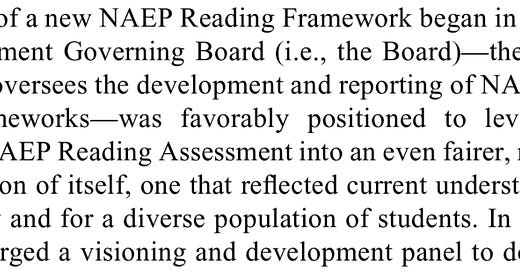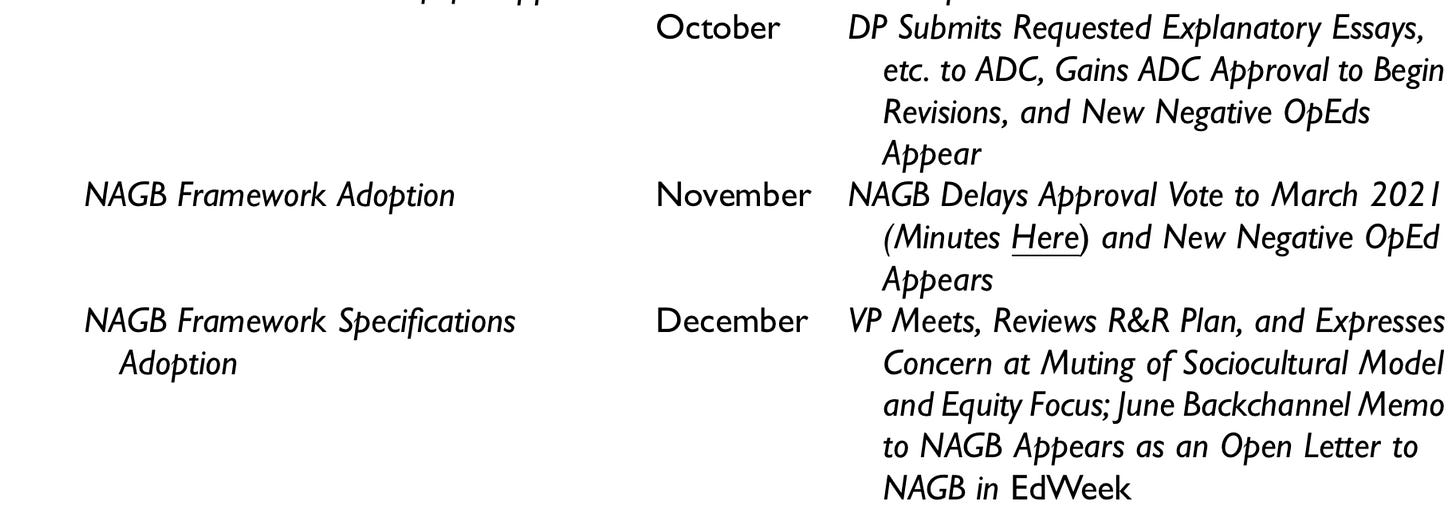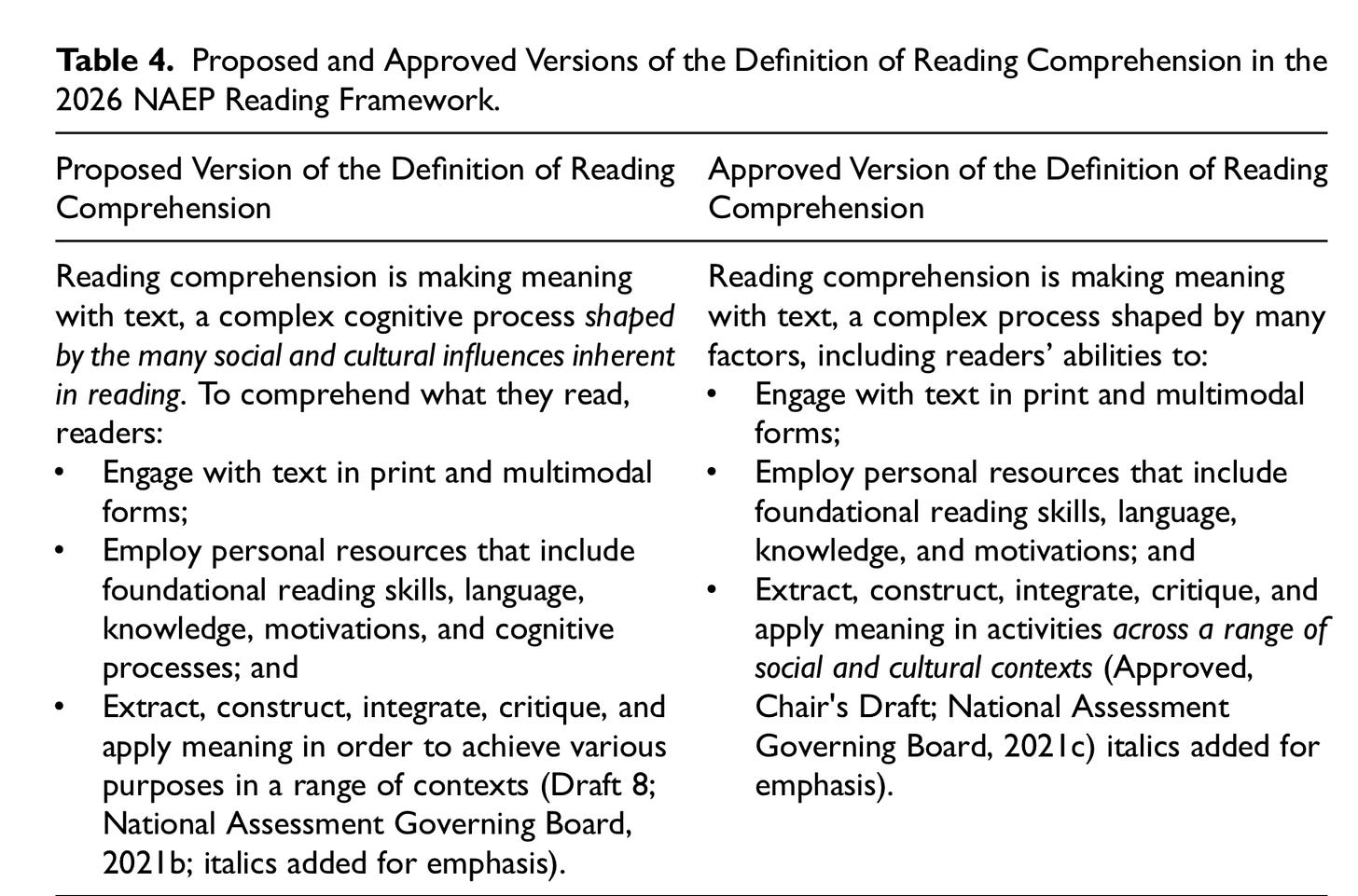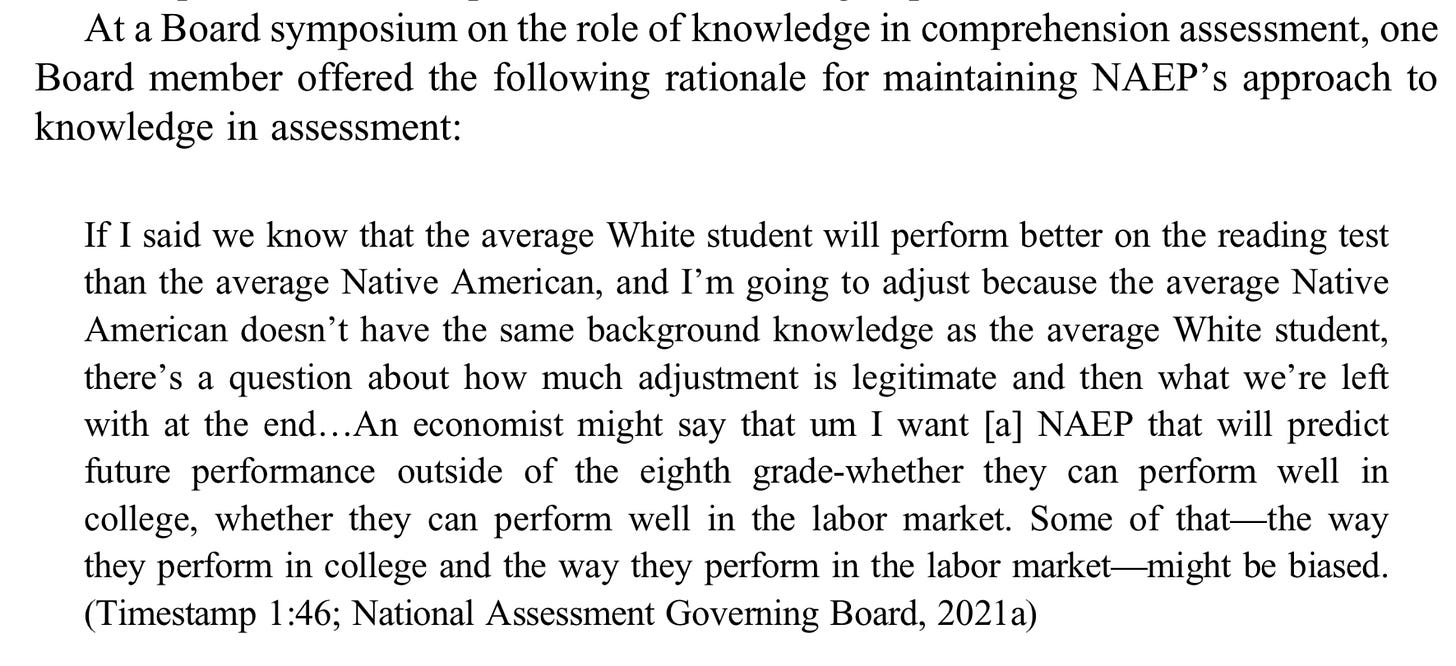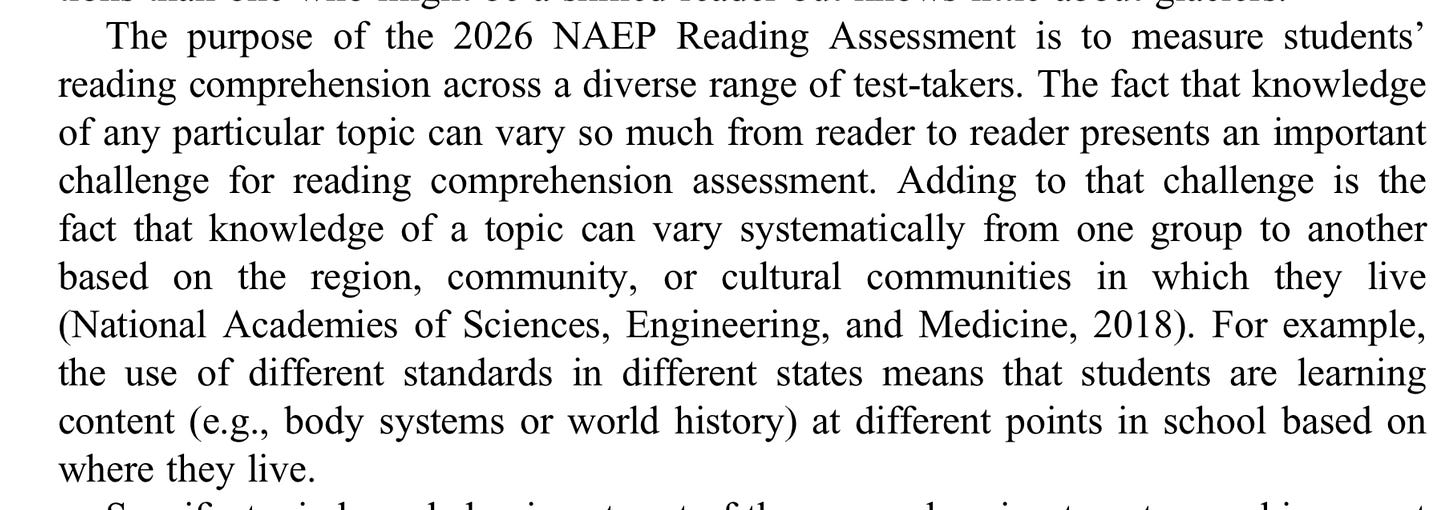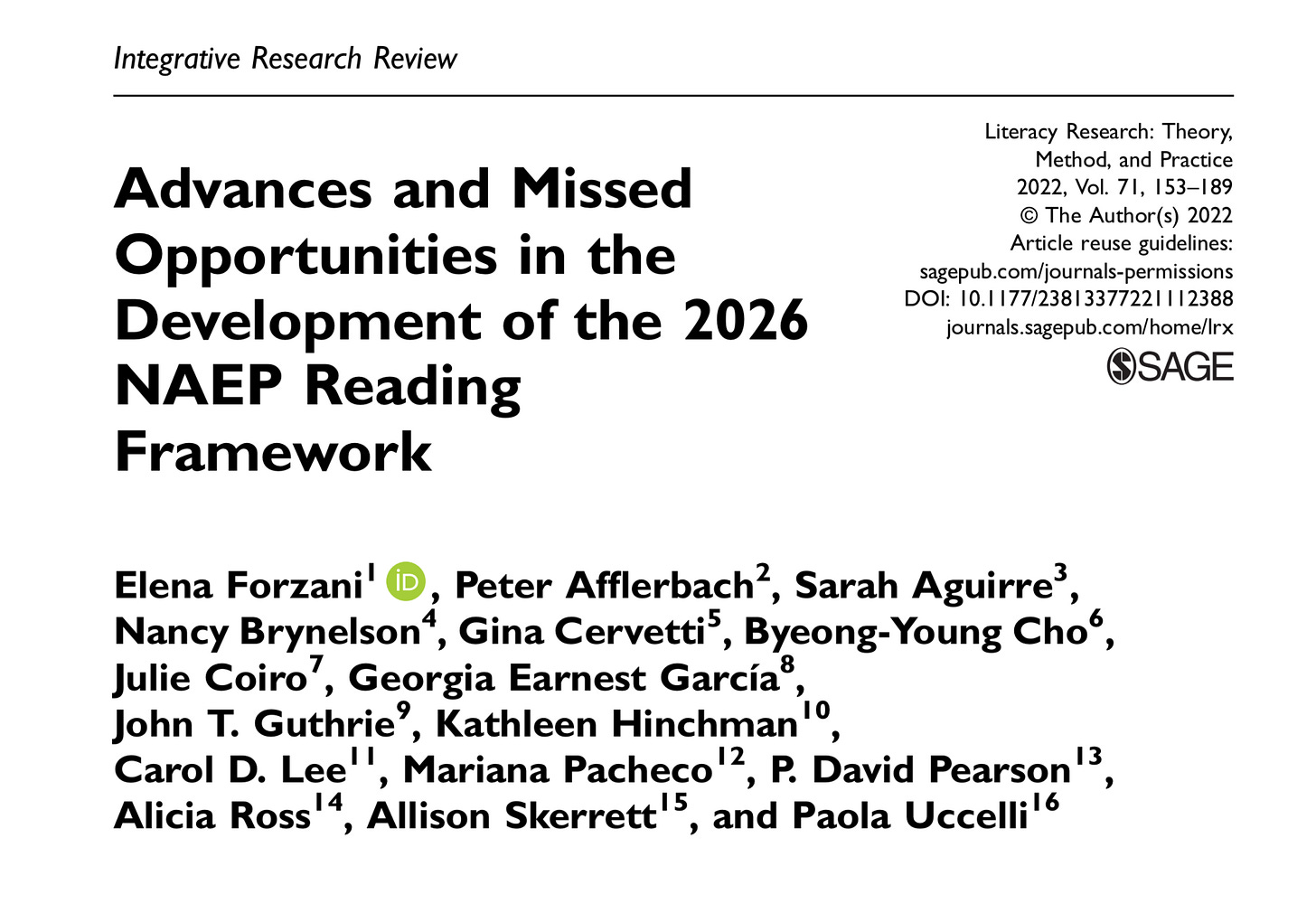The Hijacking of the NAEP Reading Test Framework by Ideological Interlopers
This is a story about missed opportunities, one among many opportunities for progressive education diminished by the Trump Presidency. If you want the rest of the story, which I hope you do, though I understand time constraints, you can access it via the footnote. I don’t think I’ve misrepresented the panel, but your reading very likely differs from mine since we approach the hijacking with different knowledge and experience. Don’t forget the January 13 deadline to provide comments on the redesign of NAEP Writing Test Framework. In this post, I’m going to present screenshots from the published version of the hijacking to provide you with an ltRRtl digest version.
NAEP test frameworks undergo revisions on a cycle. The framework specifies a template for producing alternate versions of actual tests; reading tests administered in 2026 will rely on the newly revised framework.
By “this research,” the authors refer to earlier comments in text about contributions from to reading theory from literacy research conducted over the past few decades from sociocultural and sociocognitive perspectives. Use of the word “transform” isn’t hyperbole. With a few minor changes to a definition here, a cognitive target there, something fundamental in the underlying framework would be removed and replaced, a huge upgrade.
Sometime before October, 2020, the Visioning Panel was optimistic. Approval to begin revisions to the Framework meant that the really satisfying work of contributing to an important part of our federal commitment to monitor education was in the offing. Instead, negativity in the media coming from a small, vocal, extreme ideological political position brought an about face from the Board, a Trumpian delay in the process:
During this time frame the profundity of the proposed change had crystallized in the minds of the hijackers. Taking the floor, one Board member served as a dummy for an invisible ventriloquist and shared a concern that resonates in the ideology of the lay person’s reading science cult now pumping boiler plate dyslexia laws into state legislative bodies:
A highly unusual filibuster ensued. Policy stakeholder groups as well as professional literacy organizations all took a back seat to the Chester Finns and those with similar opinions immune to full bodied science:
Table 4 gives a closeup of the fly in the ointment. If you ever need an example of big changes in meaning from the placement of just a handful of words, this is a good one. Applying the fruits of reading after comprehension, that’s a fine idea politically for college or career prep and employers, but acknowledging unequal and sometimes random distribution of prior knowledge and permitting test takers access to text-external knowledge resources, well, that apparently inappropriately levels the playing field.
NAEP’s approach to accommodations for differential prior knowledge was in part to try to select passages with an eye toward knowledge demands to use in the tests and to hope for the best. The panel wanted the test to use “in block probes” asking readers to self-assess their interest in or familiarity with the content of a passage so that scores could be examined in different interest I and familiarity clusters of readers. The panel also wanted to use “multimodal informational UDEs” (universal design elements, audio or video clips to provide context for passages. A third accommodation was “access to multiple languages” using digital resources when answering constructed response items. All of these were vetoed.
Even in the face of undeniable evidence and the logic of undeniable experts, the minority on the Board had as much right as Congressional representatives have to ignore the facts of January 6, as much right as the Simple View cultists to claim the mantle of science as their own.
The paper ends with a plea to the field to speak up. The stakes are high. The authors of the paper say it best:
Footnote—
